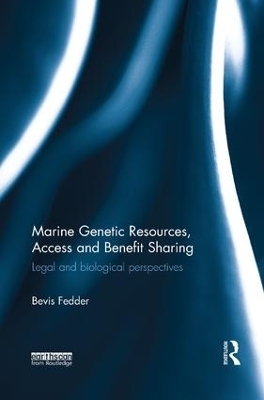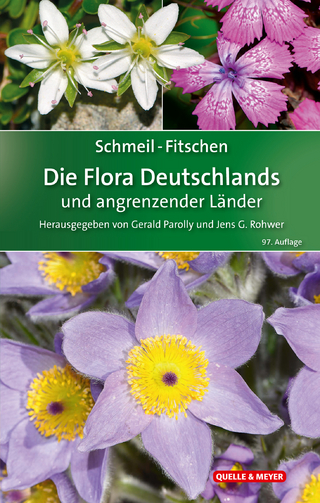
Marine Genetic Resources, Access and Benefit Sharing
Legal and Biological Perspectives
Seiten
2017
Routledge (Verlag)
978-1-138-57315-4 (ISBN)
Routledge (Verlag)
978-1-138-57315-4 (ISBN)
Access to genetic resources and Benefit Sharing (ABS) has been promoted under the Convention on Biological Diversity, with the aim of combining biodiversity conservation goals with economic development. However, as this book shows, since its inception in 1992, implementation has encountered multiple challenges and obstacles.
This is particularly so in the marine environment, where interest in genetic resources for pharmaceuticals and nutrients has increased. This is partly because of the lack of clarity of terminology, but also because of the terms of the comprehensive law of the sea (UNCLOS) and transboundary issues of delineating ownership of marine resources.
The author explains and compares relevant provisions and concepts under ABS and the law of the sea taking access, benefit sharing, monitoring, compliance, and dispute settlement into consideration. He also provides an overview of the implementation status of ABS-relevant measures in user states and identifies successful ABS transactions. A key unique feature of the book is to illustrate how biological databases can serve as the central scientific infrastructure to implement the global multilateral benefit sharing mechanism, proposed by the Nagoya Protocol.
The research for this book was supported by both the Bremen International Graduate School for Marine Sciences (GLOMAR) and the International Research Training Group INTERCOAST – Integrated Coastal Zone and Shelf-Sea Research.
This is particularly so in the marine environment, where interest in genetic resources for pharmaceuticals and nutrients has increased. This is partly because of the lack of clarity of terminology, but also because of the terms of the comprehensive law of the sea (UNCLOS) and transboundary issues of delineating ownership of marine resources.
The author explains and compares relevant provisions and concepts under ABS and the law of the sea taking access, benefit sharing, monitoring, compliance, and dispute settlement into consideration. He also provides an overview of the implementation status of ABS-relevant measures in user states and identifies successful ABS transactions. A key unique feature of the book is to illustrate how biological databases can serve as the central scientific infrastructure to implement the global multilateral benefit sharing mechanism, proposed by the Nagoya Protocol.
The research for this book was supported by both the Bremen International Graduate School for Marine Sciences (GLOMAR) and the International Research Training Group INTERCOAST – Integrated Coastal Zone and Shelf-Sea Research.
Bevis Fedder is a Postdoctoral Research Associate at the International Research Training Group INTERCOAST – Integrated Coastal Zone and Shelf-Sea Research at the University of Bremen, Germany.
1. Introduction 2. Factual Background 3. Access and Benefits Sharing in the Marine Realm 4. Weak Points of the Access and Benefits Sharing Regime 5. Biological Databases for Improving the ABS System 6. Conclusions
| Erscheinungsdatum | 09.10.2017 |
|---|---|
| Zusatzinfo | 20 Illustrations, black and white |
| Verlagsort | London |
| Sprache | englisch |
| Maße | 156 x 234 mm |
| Gewicht | 453 g |
| Themenwelt | Sachbuch/Ratgeber ► Natur / Technik ► Naturführer |
| Naturwissenschaften ► Biologie ► Genetik / Molekularbiologie | |
| Technik ► Umwelttechnik / Biotechnologie | |
| Weitere Fachgebiete ► Land- / Forstwirtschaft / Fischerei | |
| ISBN-10 | 1-138-57315-9 / 1138573159 |
| ISBN-13 | 978-1-138-57315-4 / 9781138573154 |
| Zustand | Neuware |
| Haben Sie eine Frage zum Produkt? |
Mehr entdecken
aus dem Bereich
aus dem Bereich
Buch | Hardcover (2019)
Quelle & Meyer (Verlag)
39,95 €
Botanik, Ethnopharmakologie und Anwendung
Buch | Hardcover (2022)
at Verlag
139,00 €


